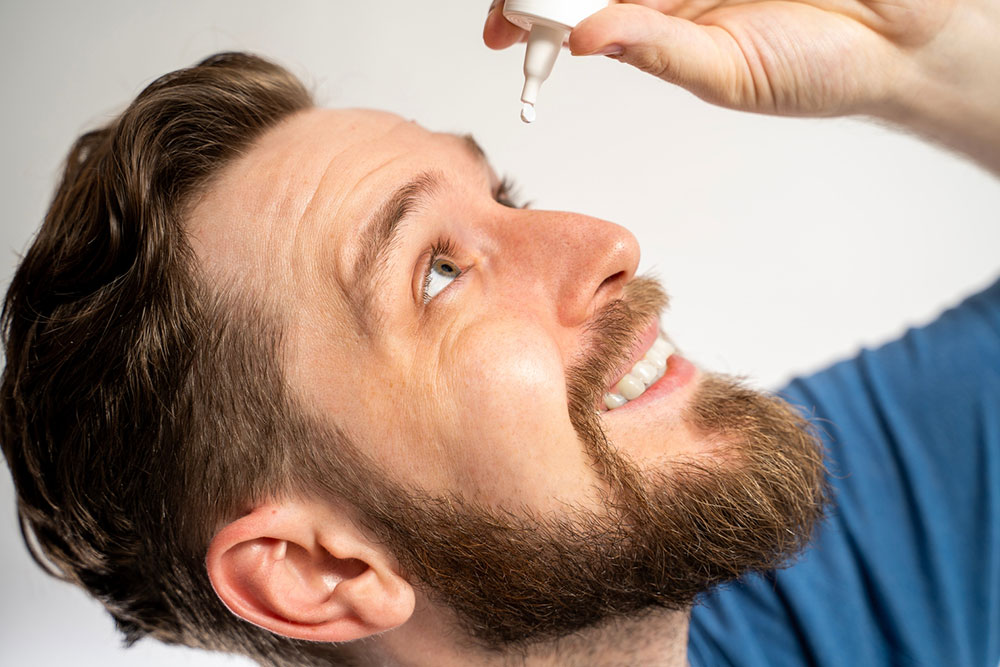
8 Effective Ways to Maintain Healthy Eyes
Eye health is as important as any other functioning organ in the body. However, with the current lifestyle of people that involves prolonged exposure to different gadgets, taking care of the eyes has become more crucial. Also, some diseases can impair vision and cause vision-related problems. To prevent any unforeseen situations, here are some effective ways one can follow to maintain optimal eye health and ensure a lifetime of clear and comfortable vision.
1. Protecting eye from sun rays
Extended exposure to harsh sunlight and its ultraviolet (UV) rays elevates the risk of eye conditions such as cataracts. Therefore, it is crucial for one to protect their eyes from harsh sunlight when stepping out. One can either wear sunglasses or UV-blocking contact lenses. Sunglasses are often regarded as a fashion accessory, but their significance extends beyond that. They serve as a crucial shield, safeguarding the eyes from the detrimental impact of the sun’s UV rays. Sunglasses with polarized lenses offer an excellent choice for those seeking enhanced glare reduction. Alternatively, individuals requiring vision correction can explore the option of UV-blocking contact lenses designed to shield their eyes from harmful UV rays.
2. Taking breaks from screen time
Staring at the screen for long periods, whether on a phone or a computer, can adversely affect the eyes, leading to dryness and strain. This discomfort may escalate to irritation and itchiness. Hence, it is essential to step aside and take multiple breaks from the screen with the help of the 20-20-20 rule. This is a straightforward yet highly effective strategy to alleviate eye strain and maintain visual well-being. Its concept is simple – for every 20 minutes of screen time, take a break for 20 seconds. During this break, one has to shift their gaze away from the screen and focus on an object located at least 20 feet away. By adhering to this rule, one can significantly reduce eye strain.
3. Eating essential foods
Including essential nutrients in daily food regimen can promote good eye health. These nutrients include antioxidants and vitamins, with a particular emphasis on vitamins A and C, along with essential minerals like lutein and zeaxanthin. They play a pivotal role in maintaining clear vision and reducing the risk of eye conditions. Some common foods that are particularly beneficial for maintaining optimal eye health include leafy greens, carrots, fatty fish, nuts, and citrus fruits.
4. Wearing prescription glasses or lenses
Using prescribed eyeglasses or contact lenses for vision correction, as prescribed by eye care professionals, is of utmost importance. Neglecting these corrective measures can result in severe consequences for eye health, including eye strain, compromised visual clarity, and frequent headaches. Furthermore, regular activities such as reading and driving may become challenging and potentially hazardous.
5. Disinfecting contact lenses
For individuals who use corrective lenses or colored lenses, it is crucial to ensure proper disinfection after every use. To effectively disinfect the lenses, one must follow the instructions mentioned on the contact lens solution packaging. Besides this, one must also ensure that their hands are thoroughly washed with soap before applying and removing the eye lenses. Following these small yet essential measures in lens care can significantly contribute to maintaining eye health and preventing infections.
6. Drinking plenty of water
Drinking enough water and staying well-hydrated throughout the day is a fundamental requirement that also benefits the eyes. Proper hydration is a preventive measure against dry eyes, further preventing the discomfort associated with it, such as itchiness and irritation.
7. Going for regular eye checkups
Going to an optometrist or an ophthalmologist for regular eye checkups is crucial in ensuring healthy eyes. Even though one might not notice any issues with their eyes, they must get their eyes checked regularly. This allows eye care professionals to determine any irregularities which may be a cause of concern. After early detection, certain eye conditions, like glaucoma or cataracts, can be managed in their early stages with effective treatment plans. Additionally, regular eye checkups are vital for individuals with pre-existing eye conditions or family history of eye diseases.
8. Wearing protective gear
Wearing protective gear while indulging in sports or physical activities that can harm the eyes is a crucial practice in safeguarding eye health. This gear may include sports goggles, helmets with face shields, or safety glasses specifically designed to shield the eyes from potential injuries.





